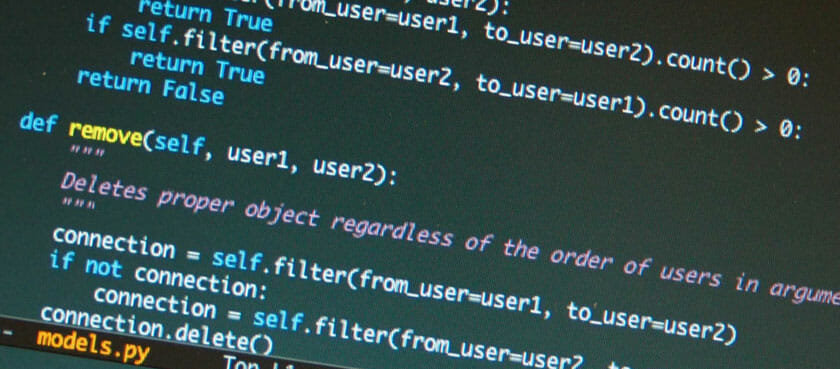Programming languages for cyber security jobs
If you are looking for a cyber security job, there are some skills that you need to master in order to find your dream job. The ideal cyber security professional possesses knowledge in system architecture, system administration, operating systems, networking, virtualization software, and other major components of IT systems. Although there are no programming languages that you must know to be successful in cybersecurity, an understanding of programming in general and skills in some languages will definitely help you to accomplish your day to day tasks.
How programming languages are used in cyber security
As programming is used to build software, apps and websites, coding languages plays a big role in IT and when providing IT support to businesses. As a cyber security professional, you need to understand precisely how things work, and therefore a comprehensive knowledge of programming is required.

In cyber security, programming languages are very often used to develop tools that will automate tasks as such as testing how secure websites are against SQL injections, monitoring and parsing logs, and various other things depending to your position.
Which languages are useful?
Now that we have discussed the importance of programming languages in cyber security and how coding knowledge will help you find a job in the industry, let’s review which languages are the most used and useful to be a successful Security Code Auditor, penetration tester, or expert in other cyber security job roles.
Python
Python is an easy to learn, concise scripting language which is ideally suited to automate repetitive tasks that will come up during your job. Python is powerful even for computing intensive tasks because you can interface modules written in C very easily, combining the development speed of Python with the execution speed of C.
Python is installed natively on Linux platforms and can be added easily to any system or server. This language is widely used when performing crypto and malware analysis, so Python programming skills are a plus when aiming to find a cyber security job.
If you are new to programming, Python is probably the language you should start with. It has an easy syntax and there are plenty of things you can do with it.
C
Pretty much every OS and 90% of the libraries and frameworks are written in C. If you want to find the weaknesses in a system from the point of view of a whitehat-hacker or penetration tester, knowing how to programme in C will help you a lot.
Created in the early 70’s, C is a lean and efficient language that can do basically anything from using socket-networking to image-processing. Most cryptographic libraries are written in C, so skills in this languages would definitely be a great bet if you want to find a cryptographer job.

Javascript
Nowadays, JavaScript is an important part of every website. This client-side language is very useful in order to make websites more user friendly, but it’s also commonly used for XSS attacks.
As XSS attacks are very common, cyber security professionals like penetration testers should know how JavaScript can be coded securely to prevent such attacks against a website, so obviously a good knowledge of JavaScript will make you faster and more efficient at spotting these attacks and fixing them.
PHP
Most websites are coded using PHP, an open-source programming language. If you are looking for a cyber security job related to websites, solid PHP skills will definitely be a big plus on your CV.
PHP knowledge, coupled with skills in JavaScript and SQL are vital when securing websites and web applications.
Proprietary scripting languages
Some hardware vendors, like Cisco, are offering proprietary scripting language that allows cyber security professionals to automate various operation related to the hardware.
Skills in these languages would benefit you if you are working with specific hardware. Most of the proprietary scripting languages aren’t hard to learn and use if you already have programming skills.
Others
- SQL injection is a common website attack method, and many websites are vulnerable. In order to protect a web app or website from this threat, a good understanding of SQL is required.
- Powershell is rocketing in popularity with frightening speed. There are a lot of very useful exploitation tools written in Powershell, so it’s worth learning.
- Bash: A very practical language to know as it is easy to perform basic commands to manipulate data as well as automation tasks from SSH/Shell. Bash is very popular on Linux systems, so there’s strong chances you’ll have to work with this language at some point in your career.
- Assembler: This low level machine code language can be very useful for taking apart malware, which could prove useful if you get into cyber security forensics as a career.
With that knowledge in mind, are you ready to take the next step and find your cyber security job? Cybersecurityjobs.net offers quality cyber security jobs in the UK, so don’t wait and check out our job offers.
